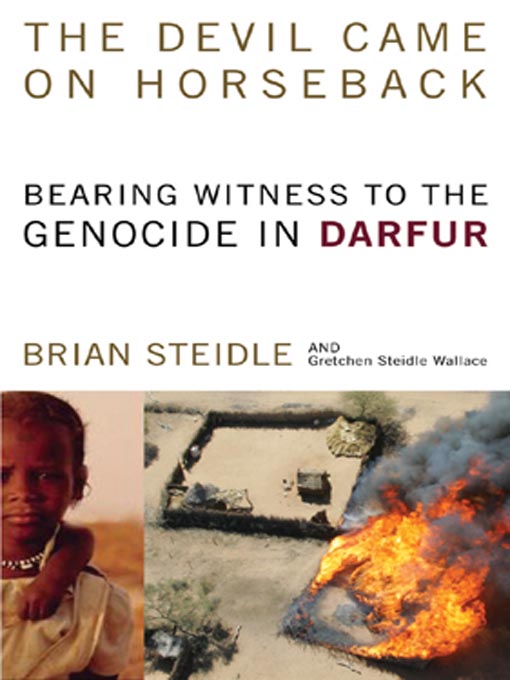
The Devil Came on Horseback
Bearing Witness to the Genocide in Darfur
کتاب های مرتبط
- اطلاعات
- نقد و بررسی
- دیدگاه کاربران
نقد و بررسی

Where is the horror? Where is the outrage, asks Brian Steidle, bewildered by the lack of international response to what is clearly the genocide of Darfur's black population. As an ex-marine and member of the African Union's monitoring team, he witnesses firsthand the government of Sudan's attempt to systematically eliminate all but the Arab population. Echoing Steidle's personal narrative, Jeff Cummings's voice moves from na•ve hope that something can be accomplished to anger at the senseless slaughter and surprise at its political complexity. Deeply frustrated at the inaction and even indifference of the rest of the world, his contract up, Steidle grabs his laptop, his notebooks, his camera, and heads for home, hoping to alert the public and awaken its moribund conscience. P.E.F. (c) AudioFile 2007, Portland, Maine

February 26, 2007
This impassioned memoir is a cry of conscience and an informative, if politically and historically limited, analysis by a former U.S. Marine. Steidle began work in Sudan in 2004, as a military contractor with the two-year-old Joint Military Commission to monitor the fragile cease-fire agreement in Africa's longest civil war between the Arab-dominated government of Sudan in the north and the rebel SPLA representing black African tribes of the south. As his career advances, Steidle is drawn into the province of Darfur, where government troops and government-backed Arab militias (known as Janjaweed or "the devil on a horse") operate against a 2003 uprising of black African tribes (overwhelmingly fellow Muslims) in a campaign whose virulence and destruction clearly amount to genocide. Steidle, who eventually became an unarmed American military observer for the African Union's cease-fire coalition, composed this account with his sister, an activist and founder of Global Grassroots, in conjunction with their documentary film of the same name and a traveling photo exhibit and college lecture tour. Drawing heavily on notes and e-mails home, Steidle's personal and fluent account effectively channels an idealistic, adventuresome young man's growing frustration and horror in the face of ongoing crimes against humanity and international complacency.

May 28, 2007
Though Cummings seems younger and more naïve than the narrator of this appalling history, he does convey the growing disbelief and revulsion that former Marine Captain Steidle feels during his six months as an African Union observer of the Darfur genocide. In ever-rising tones, Cummings conveys Steidle’s developing incredulity, frustration, horror and impotence as he witnesses and actually photographs the janjaweed arrive on horseback to systematically rape, torture, murder and mass slaughter 200,000 men, women and children, then loot and torch one village after another. Every day the unarmed AU observers interview the victims and the perpetrators, but their mandate is to observe and report on each infringement of the so-called cease-fire; they can in no way interfere—no matter how horrific the crime. What is hardest for Steidle (and listeners) to stomach is the utter complacency of the U.N., the U.S. and the world’s other powers mutely observing what can only be called genocide. (On April 16, 2007, Sudan finally approved the deployment of attack helicopters and 3,000 U.N. peacekeepers.) Simultaneous release with the Public Affairs hardcover (Reviews, Feb. 26).

























دیدگاه کاربران